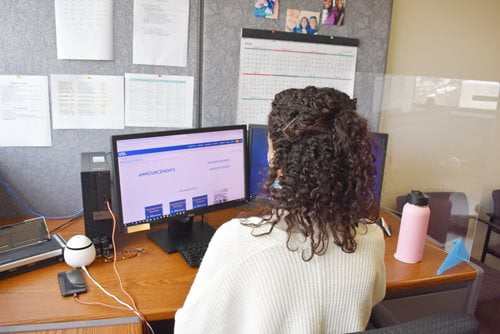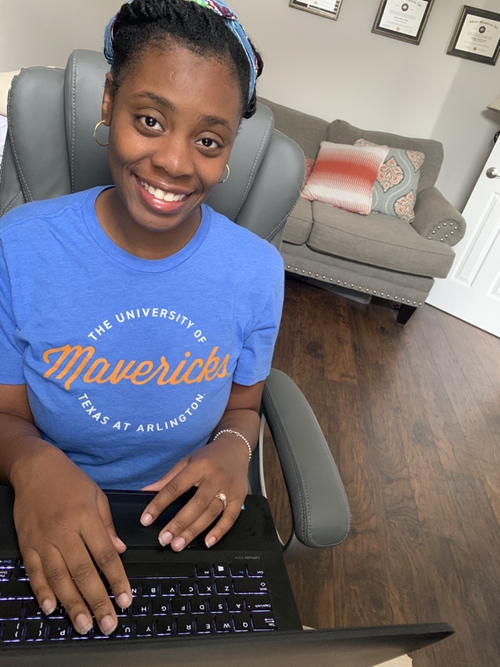Friday, Mar 12, 2021
• Collin Yoxall :
patrick.yoxall@uta.edu
The COVID-19 pandemic has changed almost every aspect of life for the College of Education community, including how the College’s academic advisors do their jobs. In interviews with the College’s three undergraduate and two graduate advisors, we discovered advisors have found a need to adapt to students’ communication needs, discovered that the nature of the student-advisor relationship is critical, and have expanded the role of academic advisor as a point of contact for other University services.
We asked our advisors to respond to three questions:
- What are three ways (they can be large or small) the pandemic has changed how you do your job? Beyond moving appointments to Teams/Zoom, how have you had to adjust?
- Are there differences in how students interact with you now versus when we were on campus?
- As we started a school year with an incoming class of students who finished high school online and are now starting college online, has that introduced new challenges versus how you advise upper classmen?
Here are selected answers:
What are three ways (they can be large or small) the pandemic has changed how you do your job? Beyond moving appointments to Teams/Zoom, how have you adjusted?
- Undergraduate Advisor Chelsey Payne: “I give students the option to sign up for a virtual meeting or to be advised via email. I also transitioned to sending all students an email with advising details on the day of their scheduled appointment.”
- Graduate Advisor Berhane Doilicho: “Although it has been a challenging year for all, I would say our students adjusted quickly to a fully online advising. Personally, I had few extra hours in a day due to working from home and not commuting – which allowed be to stay more productive.”
- Undergraduate Advisor Teaira Little: “As stay-at-home mandates were issued and the numbers of COVID cases began to rise, I had to increase the amount of mental health check-ins with students, coworkers and even within myself…I found myself checking in with students and offering Counseling and Psychological Services (CAPS) as a resource more than ever before.”

Are there differences in how students interact with you now versus when we were on campus?
- Undergraduate Advisor Teaira Little: “Without students seeing us in person, interactions can feel somewhat transactional. I like when students choose video for the appointment method. This seems most similar to an in-person experience, and I must say I enjoy seeing the occasional pet or baby make an appearance.”
- Undergraduate Advisor Chelsey Payne: “During the pandemic, communication between me and many students has increased. I’ve noticed a large influx of emails and appointments.”

As we started a school year with an incoming class of students who finished high school online and are now starting college online, has that introduced new challenges versus how you advise upper classmen?
- Undergraduate Diego Ramirez: “I feel as though the incoming freshman that have grown somewhat accustomed to the online/remote learning are having a better time with it then our upper classmen that were used to how things used to be.”
- Graduate Advisor Courtney Jones: “I work with graduate students and they really love the online component of the College of Education. They feel safe being able to work safely from home.”
You can contact the College of Education undergraduate advisorsat https://www.uta.edu/academics/schools-colleges/education/current-students/advising/undergraduate/advisors.
The graduate advisors can be reached at https://www.uta.edu/academics/schools-colleges/education/current-students/advising/graduate/advisors.
If you are in need of mental health services, the University’s Counseling and Psychological Services (CAPS) can be reached at https://www.uta.edu/student-affairs/caps.

